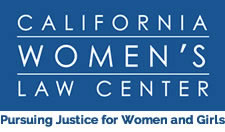
Resources: Economic Security
Information and the Persistence of the Gender Wage Gap: Early Evidence from California’s Salary History Ban
April 30, 2020Click below to read a research paper analyzing the effects of California’s salary history ban on the gender wage gap.
Limiting NDAs that Silence Workers
April 30, 2020Nondisclosure agreements (NDAs) can silence workers who have been the victims of harassment and abuse. Policymakers should prioritize limiting NDAs and contracts that silence workers.
Housing Discrimination, Harassment, and Your Rights (2020)
April 28, 2020CWLC recorded a webinar on April 28th that outlines these changes and how they impact women and families. Click below to listen. If you believe you have been treated unfairly because of your gender, please call us to discuss your situation.
2020 Wage Gap and Salary Fact Sheets
April 3, 20202019 Amicus Brief Summary
December 18, 2019UCLA’s Health Policy Report: Senior Rent Burden (2018)
August 22, 2018UCLA’s Center for Health Policy Research released the below Health Policy Report in August 2018 regarding the rent burden on low-income older Californian tenants.
Women, Aging, and Poverty PowerPoint (2018)
June 19, 2018In May 2018, the California Women’s Law Center and WISE & Healthy Aging created Women, Aging, and Poverty, a PowerPoint presentation discussing the needs of our aging population and the challenges older women face.
California’s Aging Population: Implications for Housing (2018)
June 15, 2018In 2018, the University of Southern California created California’s Aging Population: Implications for Housing, a PowerPoint presentation discussing housing challenges our aging population face.
California Financial Security: Dreaming or Struggling AARP Survey (2017)
December 27, 2017This statewide survey of 800 California adults age 36-70 who are in the workforce finds that some Californians are living the dream, but many are struggling.
Training – Fair Housing Act Claims for Failure to Reasonably Accommodate (2017)
December 20, 2017The California Women’s Law Center and the Disability Rights Education and Defense Fund offered this training opportunity about how and when to bring a claim under the federal Fair Housing Act for failure to reasonably accommodate a disability.
Fact Sheet – Asking for Salary History Perpetuates Pay Discrimination from Job to Job (2017)
July 17, 2017The National Women’s Law Center released a fact sheet in June 2017 highlighting how Asking for Salary History Perpetuates Pay Discrimination from Job to Job.
Webinar – Equal Pay in California: Your Right to Pay Equity in the Workplace (2016)
December 30, 2016The California Fair Pay Collaborative, comprised of the California Women’s Law Center, Equal Rights Advocates, and Legal Aid Society-Employment Law Center trained individuals and attorneys in how to navigate California’s Equal Pay Act. This training covers the rights workers have under California’s equal pay law, how to spot a violation of those rights, and what
Read more…
Aging, Women, and Poverty in California: We Must Do More (2016)
December 28, 2016On June 3, 2016, the California Women’s Law Center (CWLC) partnered with the California Commission on Aging and the California Commission on the Status of Women and Girls to co-host the “Aging, Women, and Poverty in California” forum. This policy paper summarizes the key issues facing poor older women in California as well as serves
Read more…
Aging, Women, and Poverty In California Forum Documents (2016)
December 28, 2016On June 3, 2016, the California Women’s Law Center (CWLC) partnered with the California Commission on Aging and the California Commission on the Status of Women and Girls to co-host the “Aging, Women and Poverty in California” forum. The Forum focused on the priorities and perspectives that community and policy leaders need to address as our population
Read more…
Alternative Custody Program (2015)
December 21, 2016The Alternative Custody Program was expanded in 2015 to allow certain incarcerated women to serve the remainder of their sentences in approved facilities in their community to reunite families and keep children out of the foster care system. By connecting incarcerated women to vital services, such as substance abuse programs, housing, and employment opportunities, the
Read more…
CWLC’s Distinguished Guest Speaker Series “Incarcerated Women and Girls” (2015)
December 20, 2016On September 2, 2015, CWLC and the Feminist Majority Foundation hosted a panel discussion to examine California’s corrections system, including the unique needs of incarcerated women and youth. The discussion focused on programs and service providers that often play a vital role of giving incarcerated individuals hope for a better life. Speakers included Scott Budnick
Read more…
Older Women’s Health Resource Guide: Learning to Demand and Receive Better Care (2006)
December 19, 2016This guide was created to provide basic and general information about your rights regarding your ability to receive quality health care and what steps you can take if you believe you are not able to receive the care you need. It is meant to educate and empower you to know the law, demand your rights
Read more…



